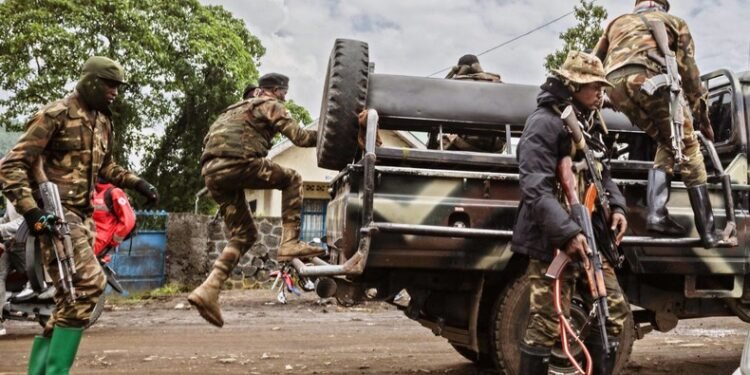Organized by Angola, the meeting was intended to ease tensions between the neighboring nations and pave the way for a potential agreement.
Both countries fell out of favor after Rwanda was accused of involvement in the resurgence of the M23 rebel group, which has caused significant instability in eastern DRC.
Reuters reports that the recently canceled meeting between both presidents was meant to provide a rare face-to-face dialogue between the Central African leaders in Angola.
This has escalated tensions that have historical, political, and ethnic roots.
Rwanda’s alleged involvement in M23
The relationship between the M23 rebel group and the Rwandan government has long been a source of controversy and intense scrutiny.
Although Rwanda has consistently denied any involvement with the group, various reports and investigations suggest otherwise.
For instance, the International Centre for Counter-Terrorism (ICCT) highlights findings from the UN Group of Experts on the Democratic Republic of Congo, which have documented alleged Rwandan military support for the M23.
These reports claim that Rwanda has provided the group with weapons, ammunition, and reinforcements, fueling the ongoing conflict in eastern DRC.
Al Jazeera also reports that a UN investigation has revealed a connection between the Ugandan army and the M23 rebel group in eastern DRC, as violence escalates.
The UN investigation also stated that 3,000-4,000 Rwandan soldiers fought alongside M23 rebels and that Kigali had “de facto control” over the group’s operations.
The rough path to peace
In early October, Rwandan Foreign Minister, Olivier Nduhungirehe accused his Congolese counterpart of refusing to sign an agreement aimed at resolving the M23 rebel conflict in eastern Democratic Republic of Congo, which has displaced over 1.9 million people.
“We were ready to sign … but the Congolese minister refused. She first commented on the report and then later, after consultation, she came back. She told us she was opposed to adopting the report.”
“The plan foresaw the actions against the FDLR taking place first, followed a few days later by Rwanda easing its “defence measures,” Nduhungirehe told Reuters.
“The cancellation of this tripartite meeting is due to the refusal of the Rwandan delegation to participate,” Congo’s presidency stated.
The statement added that Rwanda introduced a condition for signing a peace agreement – the Democratic Republic of Congo must hold direct talks with the M23 rebels.
However, Congo rejected this condition, leading Rwanda’s foreign ministry to declare that the lack of consensus makes it impossible for them to sign the agreement that was planned for Sunday.
Unfortunately, the Rwandan delegation’s refusal to participate led to the cancellation of the meeting, according to the Congolese government.
The development has dimmed hopes for a peaceful resolution to the nearly three-year-long M23 insurgency.
The proposed peace plan involved Rwanda dismantling its defensive measures in exchange for Congo eliminating the Democratic Forces for the Liberation of Rwanda (FDLR), a Hutu rebel group that has attacked Tutsis in both countries.









